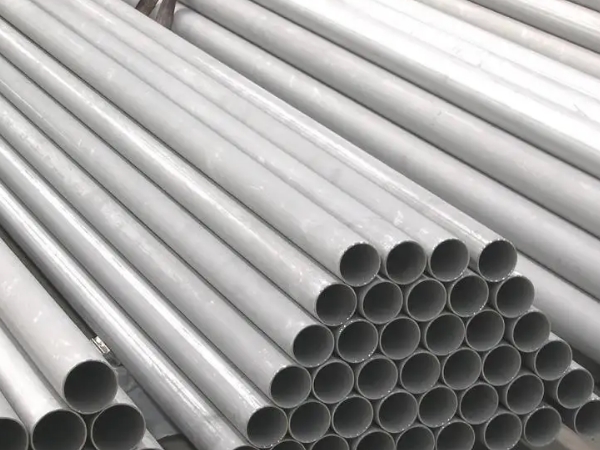What are the Chemical Elements that Affect Stainless Steel Seamless Pipes?
Date:2022-04-21View:1410Tags:Stainless Steel Seamless Pipes
In the processing of stainless steel seamless pipe, we know that for many chemical elements content is standard, the phenomenon of inaccurate element content should be adjusted in time, otherwise it will have a great impact on the quality of stainless steel seamless pipe, the following we will talk about what are the elements affected in the processing of stainless steel seamless pipe?
1. C: The higher the carbon content, the higher the hardness of the steel, but the worse its plasticity and toughness;
2. S: It is a harmful contaminant in steel. When steel with high sulfur content is subjected to high temperature pressure processing, it is easy to be brittle, which is usually called hot brittleness;
3. P: It can significantly reduce the plasticity and toughness of steel, especially at low temperature. This phenomenon is called cold brittleness. In high-quality steel, sulfur and phosphorus should be strictly controlled. But on the other hand, the high content of sulfur and phosphorus in low carbon steel can make it easy to cut, which is beneficial to improve the machinability of steel;

4. Mn: It can improve the strength of steel, weaken and eliminate the adverse effects of sulfur, and improve the hardenability of steel. High-alloy steel (high-manganese steel) with high manganese content has good wear resistance and other physical properties.
5. Cr: The basic element for stainless steel to obtain corrosion resistance. When the chromium content in the steel reaches about 12%, the action of chromium and the oxygen in the corrosive medium forms a thin oxide film (self-passivation) on the surface of the steel. film), which can prevent further corrosion of the steel matrix.
6. Si: Silicon is added as reducing agent and deoxidizer in the steelmaking process, so killed steel contains 0.15-0.30% silicon. If the silicon content in the steel exceeds 0.50-0.60%, silicon is considered an alloying element. Silicon can significantly improve the elastic limit, yield point and tensile strength of steel, so it is widely used as spring steel. Adding 1.0-1.2% silicon to quenched and tempered structural steel can increase the strength by 15-20%. The combination of silicon and molybdenum, tungsten, chromium, etc. can improve corrosion resistance and oxidation resistance, and can manufacture heat-resistant steel. Low carbon steel containing 1-4% silicon, with extremely high magnetic permeability, used in electrical industry to make silicon steel sheets. An increase in the amount of silicon will reduce the weldability of the steel.
7. Ni: It can improve the strength of steel while maintaining good plasticity and toughness. Nickel has high corrosion resistance to acid and alkali, rust and heat resistance at high temperature. However, since nickel is a relatively scarce resource, other alloying elements should be used instead of nickel-chromium steel.
Stainless steel seamless pipe is a steel pipe that is resistant to weak corrosive media such as air, steam, and water, and chemically corrosive media such as acid, alkali, and salt. Due to its good comprehensive performance, seamless steel pipes are widely used in basic projects such as chemical industry, construction, water supply, drainage, petroleum, light and heavy industry, refrigeration, sanitation, plumbing, fire protection, electric power, aerospace, shipbuilding and so on.

